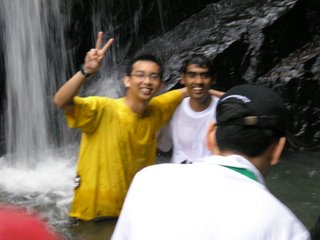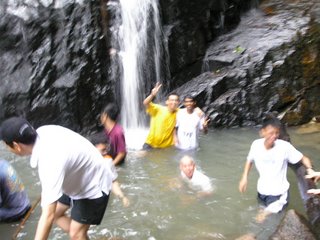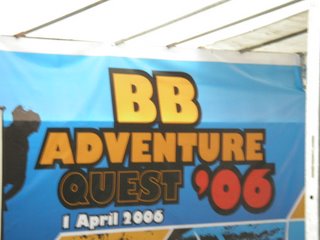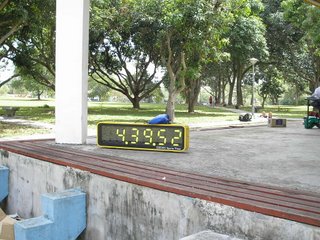A pastor's response to The Da Vinci Code phenomenon and the doubts it raises.
by James Emery White, guest columnist
The DaVinci Code has been atop The New York Times bestseller list and Amazon.com since it was released three years ago. Not even the release of a new John Grisham novel knocked it off. It inspired a one-hour ABC News special. Now it's a major motion picture starring Tom Hanks.
At first glance the plot isn't anything that stands out above normal mystery fare. It starts off with the murder of a curator at the Louvre in Paris, leads to a trail of clues found in the work of Leonardo DaVinci, and the discovery of a centuries-old secret society. It's a page-turner. But that's not what has grabbed our attention. It's that the clues of Leonardo's work and the mission of the secret society revolve around the Holy Grail.
This Holy Grail is not put forward as what we traditionally think of as the Holy Grail, the chalice that Jesus used during the Last Supper. The novel identifies the Holy Grail as the bloodline of Jesus and suggests that Mary Magdalene was the wife of Jesus and the mother of his child. And because she bore descendants, she is, in fact, the Holy Grail. After the crucifixion, she fled with their child to the south of France where they established the Merovingian line of European royalty, which then became the basis of a secret society to preserve that bloodline and to protect the secret until it was time to make it known to the wider world.
Along the way, author Dan Brown also suggests the church invented the deity of Jesus, and it's all been covered up primarily by a secretive Catholic group known as Opus Dei. Let's consider the claims Brown's novel makes:
Were Jesus and Mary married?
The Bible says Mary was a devoted follower of Christ, liberated from a terrible torment by Jesus. She gave the rest of her life to serving him and his cause. She was present at his crucifixion and burial, and was the first person Jesus appeared to following his resurrection. She was a remarkable woman, honored throughout Christian history.
Brown takes what the Bible says and adds to the tale significantly. A character states that Mary was married to Jesus and the marriage is a matter of historical record. That's simply not true. There is no accepted historical record whatsoever to that effect.
Are the Gospels wrong?
Brown claims the early church suppressed up to 80 alternate accounts of the life and teaching of Jesus and arbitrarily chose the four we have today in order to suppress accounts that elevated Mary.
As a scholar in systematic theology, I can say that no biblical scholar I'm aware of has any knowledge of 80 alternate gospels floating around from the 1st century. The four Gospels we have are there because they were credible. These four were universally affirmed as being authentic, eyewitness accounts of Jesus.
What Brown wants to lift up are those documents that began to be circulated much later. Those include one that claimed to be the gospel of Mary Magdalene, in which the author writes that Mary was loved by Jesus above all women, that she was a leader among the apostles, that she had been given secret knowledge by Jesus, and that the other apostles, particularly Peter, were all threatened by her. No scholar of note buys that; neither does the textual historical evidence of their dating support that.
Did the church invent Jesus' divinity?
One of his characters says almost everything our fathers taught us about Christ is false. Brown claimed the idea of the deity of Jesus was created out of thin air in A.D. 325 at the Council of Nicea. Brown argues that in this council, church leaders wanted to consolidate their powerbase, create a divine Christ, and an infallible Scripture even though no one believed it up to that point in time.
Brown is right about one thing. In the course of Christian history, few events are more significant than the Council of Nicea. The Roman Emperor Constantine recently had converted to the Christian faith, and he called bishops together from all around the world, not to figure out what to believe but to affirm it.
The council resulted in what we know today as the Nicene Creed, a statement clearly affirming the Trinitarian nature of God and the divinity of Jesus. The Creed passed 298 to 2. Christians overwhelmingly from the beginning worshiped Jesus as Savior and Lord, and every major Christian writer and thinker leading up to Nicea from the earliest documents of the early church testifies to this.
Christianity will stand up under scrutiny
Let me add a personal, pastoral word about this. When it comes to books like this or any other medium that's out there, go to the sources. Read what the Bible really says. Look at the history of the early church. Check it out. If Christianity is true, it will stand up under any amount of intellectual or historical scrutiny.
The Bible warns spiritual seekers to be careful here: "Evidently some people are throwing you into confusion and are trying to pervert the gospel of Christ. But even if we or an angel from heaven should preach a gospel other than the one we preached to you, let him be eternally condemned … I want you to know, brothers, that the gospel I preached is not something that man made up. I did not receive it from any man, nor was I taught it; rather, I received it by revelation from Jesus Christ" (Galatians 1:7-8, 11-12).
Somebody needs to break The Da Vinci Code, not for the reasons the author argues, but because the truth it distorts is so important to know. This distortion desperately needs to be revealed.
James Emery White is senior pastor of Mecklenberg Community Church in Charlotte, North Carolina. This column is excerpted from a sermon, "There's Something About Mary," published in PreachingToday.com issue 257.



























